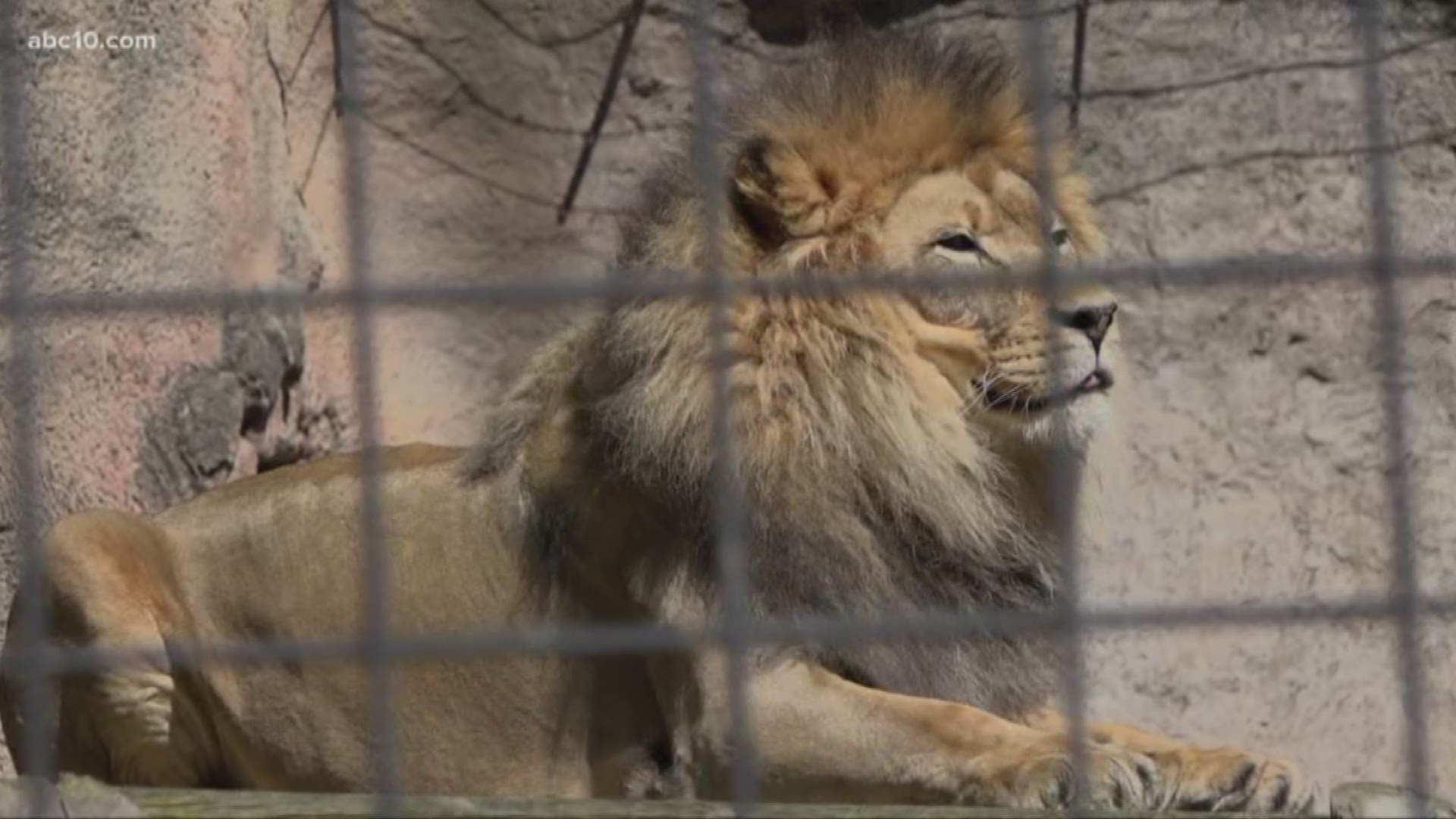SACRAMENTO COUNTY, Calif. — As shopping malls, concert venues and amusement parks were forced to close more than three weeks ago because of the coronavirus, so did two Sacramento County zoos.
But while visitors are no longer walking through the gates of the Folsom City Zoo Sanctuary and the Sacramento Zoo, the animals still rely on daily care — pandemic or not.
"The animals really are relying on the keepers, and they are an extremely dedicated bunch of individuals," said Jocelyn Smeltzer, the Zoo Manager for the Folsom City Zoo Sanctuary. "So they're doing a great job to keep them healthy and safe,"
The Folsom sanctuary is one zoo in the area that has a rescued tiger, as well as mountain lions and bobcats.
So when the news broke over the weekend that a tiger at the Bronx Zoo in New York had tested positive for the coronavirus, Smeltzer says even stronger protocols were put into place.
"We're taking extra precautions, so folks are wearing masks even when making animal diets and just sort of doubling down on all of the extra precautions of staying six feet away from humans and animals and wearing protective equipment," she said.
And it's a similar story, just about 30 minutes down the road. While the Sacramento Zoo doesn't have tigers, it does have snow leopards, African lions and jaguars.
"Staff is not entering the building without that PPE gear now," said Matt McKim, the Director of Animal Care at the Sacramento Zoo said. "So that's staff working around those susceptible animals, which is a pretty long laundry list these days."
The zoo has the same policy for the other animals, too, including most of the primates, the big cats, river otters, meercats and other species. McKim told ABC10 that the zoo has "really strengthened those protocols around those animals."
Stronger protocols mean required PPE gear at all times and further distances.
That includes wearing masks and gloves for food and diet preparation, as well as while working in and around those animals.
"And for those animals that are now susceptible, we're also trying to physically separate from them even further than we did before," McKim said.
As for the animals, all are healthy, but they know something's up.
Before the closure, the Sacramento Zoo employed upwards of 130 people. Because of the closure, McKim says they've had to layoff around 50 people, furlough 20 and reduce the hours for 30 employees.
In addition to these numbers, their concessions vendor had to lay off about 50 people.
"The animals can definitely tell things are different, you know," McKim said. "We have half a million visitors per year and right now, we have no visitors. So you'll see the giraffes are kinda looking for people or they're wondering when that public deck feeding is, or our lions will wake up for a nap more often and the river otters of course, are kind of looking for people."
Follow the conversation on Facebook with Lena Howland.
FOR THE LATEST CORONAVIRUS NEWS,
DOWNLOAD THE ABC10 APP:
►Stay In the Know! Sign up now for ABC10's Daily Blend Newsletter



